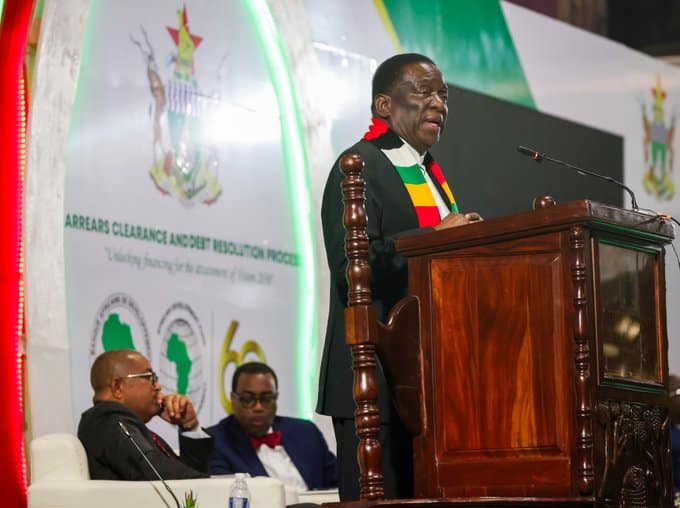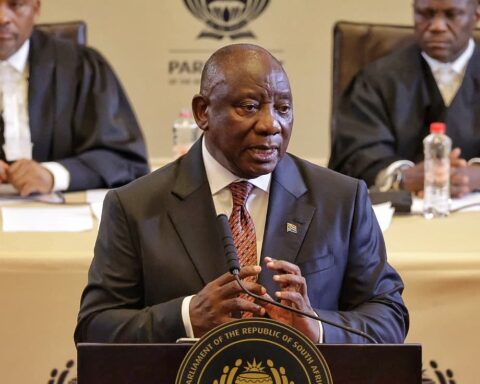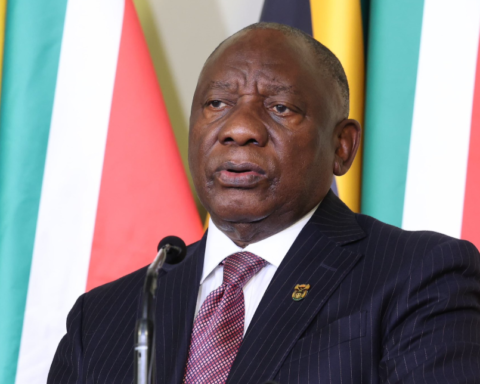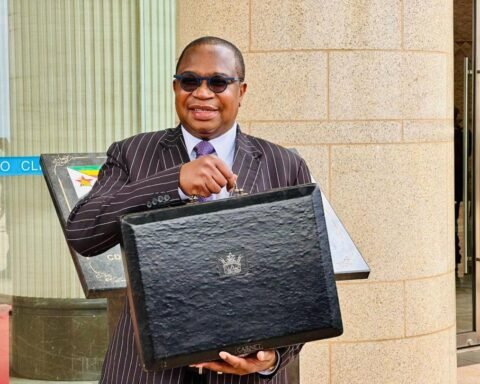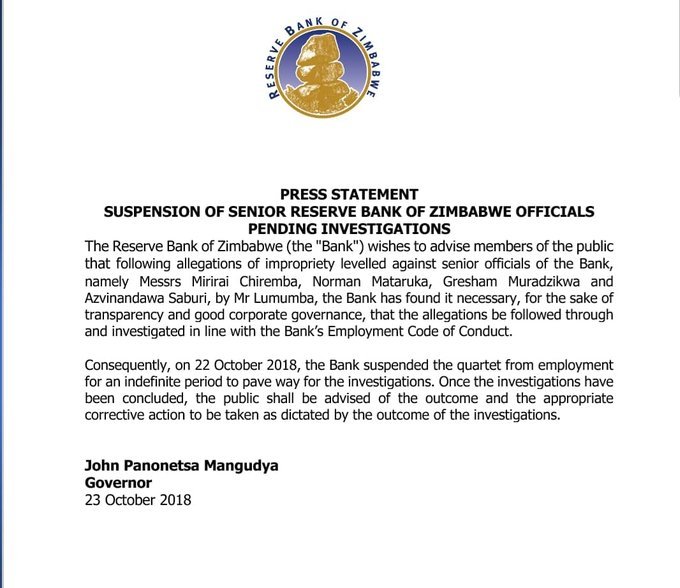Zimbabwe’s President Emmerson Mnangagwa met with international creditors and finance executives on Monday to discuss clearing $12.7 billion in external debt, marking a crucial step towards the country’s first access to international capital markets in over 20 years.
The debt, which amounts to 81% of Zimbabwe’s GDP, presents a significant hurdle for the Southern African nation that has grappled with recurring hyperinflation and failed currency reforms.
President Mnangagwa revealed that Zimbabwe is in talks with the International Monetary Fund (IMF) for a Staff Monitored Program (SMP), though the country has already missed two implementation deadlines.
“The IMF is currently precluded from providing financial support to Zimbabwe” due to unsustainable debt and external arrears, an IMF spokesperson confirmed.
African Development Bank (AfDB) President Akinwumi Adesina expressed readiness to support Zimbabwe’s economic reforms:
“That is the key,” Adesina told the conference, indicating the AfDB has funds available from a special facility to help settle Zimbabwe’s arrears.
Finance Minister Mthuli Ncube projected that concrete timelines would emerge by mid-2025, contingent on securing bridge financing commitments from lenders.
“The issue of arrears is a major albatross around our neck,” said Prosper Chitambara, a Harare-based independent economist. “Once the arrears are cleared it will be cheaper to borrow and easier to attract investment.”
Debt Composition
Zimbabwe’s debt situation is unique among African nations facing financial distress:
- 45% consists of outstanding debt
- Remaining portion comprises arrears and penalties
- Government currently making only token payments to 16 bilateral creditors
Zimbabwe’s debt crisis sits within a broader African context, with the UN reporting 24 out of 35 low-income African countries at high risk of debt distress. Recent years have seen debt restructuring in Zambia, Chad, Ghana, and ongoing efforts in Ethiopia.
The government has enlisted support from Global Sovereign Advisory Company and law firm Kepler-Karst, funded by the Africa Legal Support facility, to navigate the complex restructuring process.
